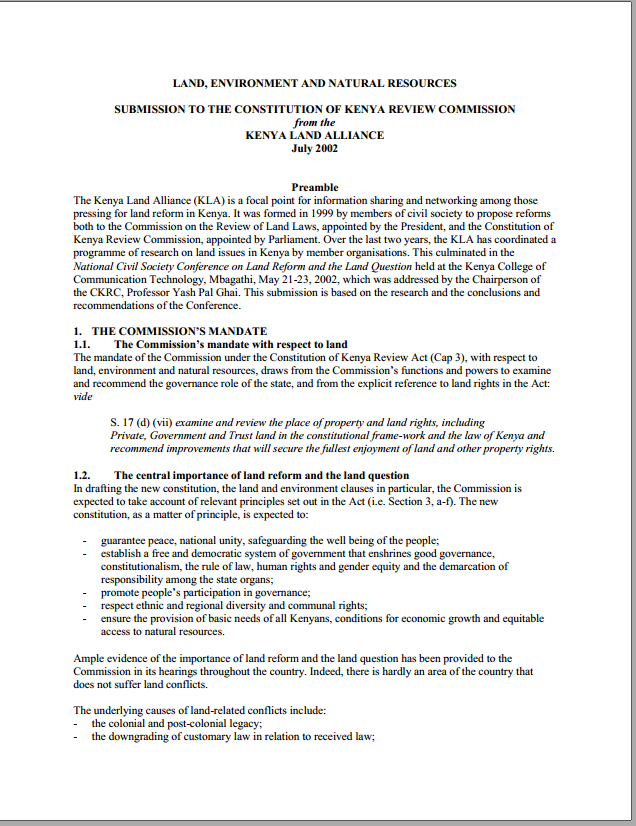National Conference on Emerging Land Issues in Kenyan Agriculture and their Implications for Food Policy and Institutional Reforms
For a long time sub-Saharan Africa has been considered to have abundant and underutilized land than any other continent. On the contrary, recent studies show that many rural Africans live in increasingly densely populated areas where all arable land is allocated or under cultivation. This has led to a long-term decline in farm size and reduced fallows.








